
Turnover in Indiana prisons is a long-standing problem that has grown worse during the coronavirus pandemic. Former employees at the Indiana Women's Prison say the issue stems from the harsh work environment and staff culture.
Jake Harper/Side Effects Public Media
Update Oct. 2, 2020
On Thursday, Indiana Department of Correction Commissioner Rob Carter announced a pay increase for agency staff. Correctional officers will receive $19 per hour, with an increase to $20 within a year. The previous starting pay rate was $16 per hour.
The announcement said other agency staff would receive raises, as well.
“I’m writing to thank all of you for your service during this unprecedented time,” said Carter in an email to staff. “I am proud of each and every one of you.”
Original story
Amanda Kohlhepp had plans for a career in corrections. She worked a few years as an officer at the men’s prison in Plainfield, Indiana, before she made sergeant in 2018, and hoped to keep moving up. She wanted to write policies — sensible ones that made life easier for staff and for people who are incarcerated.
“I wanted to move up the chain. I wanted to make a difference,” she says. Kohlhepp even joked that when she became a warden, her partner could be a stay-at-home mom.
In April, she transferred from a men’s prison to the Indiana Women’s Prison in Indianapolis. “It was known you can promote quickly at IWP,” she says. “Once I got there it was like, ‘I know why — everyone quits.’”
Staff retention is a long-standing issue within the Indiana Department of Correction. There are consistently hundreds of vacant positions across the department’s adult facilities, but the problem has gotten worse during the pandemic.
In April, the National Guard was activated to help with staff shortages, and even “high-risk” employees were required to come to work if they had no COVID-19 symptoms. The number of department vacancies grew from 888 at the end of February to 1,171 in July — the highest number since records were posted online in 2014.
Side Effects spoke with four former and one current staffer at the Indiana Women’s Prison, which reported 30 employees retired or were terminated from March through July. They describe severe staff shortages, harsh working conditions and a staff culture that prioritized punishing the women in the facility — issues that grew during the pandemic-related lockdown. They say their superiors pushed staff to go against department training, and that their efforts to treat women with respect only invited scrutiny. Those issues, they say, have hastened turnover at the prison.
Charlene Burkett, the ombudsman for the corrections department, notes the vacancy problem in her 2017 and 2018 annual reports. She says the problem has gotten worse — and can have troubling consequences.
“It's especially bad right now because of COVID,” she says. “There's been a lot of retirements within the department.”
Burkett, whose office fields complaints about the department, says that as staffing numbers decline, complaints rise — along with incidents within the facilities. “When you have low staffing numbers, it creates a dangerous environment."
Corrections officials declined to be interviewed for this story. David Bursten, the department’s spokesperson, wrote in an email that the agency has held 150 recruiting events this year. “We seek to attract people with fresh perspectives who can make the Department better through diversity and a true commitment to changing lives.”
“As you prepare your story, you can help spread the word that there are career opportunities at the Indiana Department of Correction,” Bursten wrote.
Bursten’s written statement, read to her over the phone, made Kohlhepp laugh out loud.
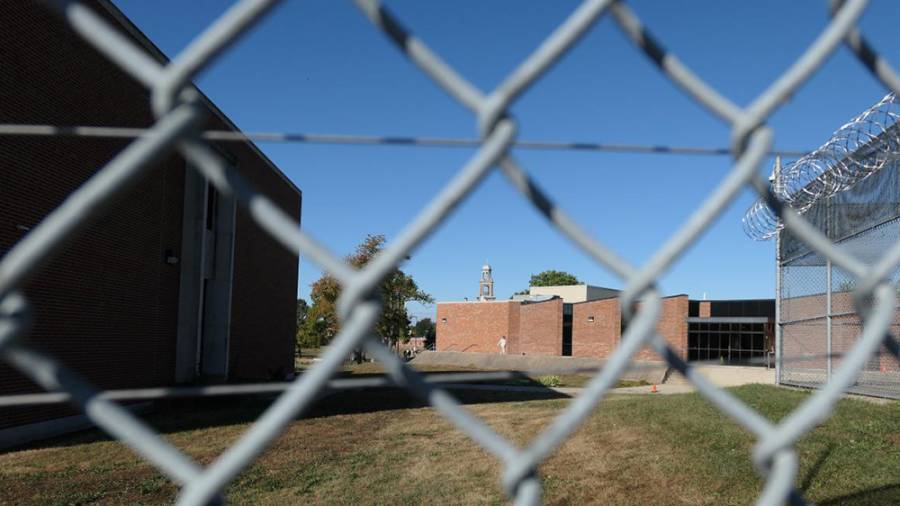
Kohlhepp says transferring to the Indiana Women’s Prison was a shock. When she arrived in April, the prison was locked down to prevent the spread of the coronavirus. Women were confined to their cells, most of which have no running water or toilets. The custody staff spent much of their time on door duty, monitoring dozens of cells for women needing the bathroom — many of the prison’s doors must be unlocked manually. Women were urinating in cups, sometimes skipping medications that could cause them to urinate more.
Kohlhepp says the summer heat compounded those issues. Emails show that staff had to call numerous medical emergencies during the lockdown, and even correctional officers had problems.
“It is well over 100 degrees in those rooms,” she recalls. “I'm sweating my ass off, and I'm in the open.”
Kohlhepp says she once showed up to a unit to find an incarcerated woman draped over a wheelchair, nodding off, slurring her words and unable to give her name — signs of a heat stroke. The officer on duty never called the medical staff.
Kohlhepp called a signal 3000 — a medical emergency — and put ice packs in the woman’s armpits, something she remembered from lifeguarding at Walt Disney World.
When the prison finally unlocked the cell doors, corrections officials said it was because of the heat. Kohlhepp says it was actually a result of media coverage highlighting onerous lockdown conditions, calling it a “CYA thing” — cover your ass.
She says the women’s prison had a different staff culture, too. There was pressure on the staff to be stricter with the inmates, to “lay hands on” women when she would have preferred to de-escalate a situation. Officers frequently punished women for minor infractions that would have received warnings or gone unnoticed at the men’s prison, she says.
“The women get treated worse than the men,” she says. “It was an everyday struggle with my morals.”
In one particular incident that still bothers her, Kohlhepp says a woman flailed and accidentally kicked her. Kohlhepp wasn’t injured, but she says the woman was given nine months in solitary confinement for the offense.
Kohlhepp and other former staff say the prison was consistently short-staffed. Officers were forced to work overtime nearly every day, an additional four hours on top of their 12-hour shifts. Kohlhepp was often relegated to a post — normally a CO’s job, not a sergeant’s — and was sometimes the only staff member overseeing several units.
“I was a sergeant on paper, but really I was a glorified officer,” she says.
One of her duties was to act as a member of a quick response team, which would deal with emergencies in the facility. Kohlhepp says that department policy dictates that the team must have four members, but she often responded to such emergencies alone. No one had her back.
“Probably 85 to 90 percent of the time I was there, I was the only person responding,” she says. “That's not safe, period. I don't know how they're getting away with it, but they do.”
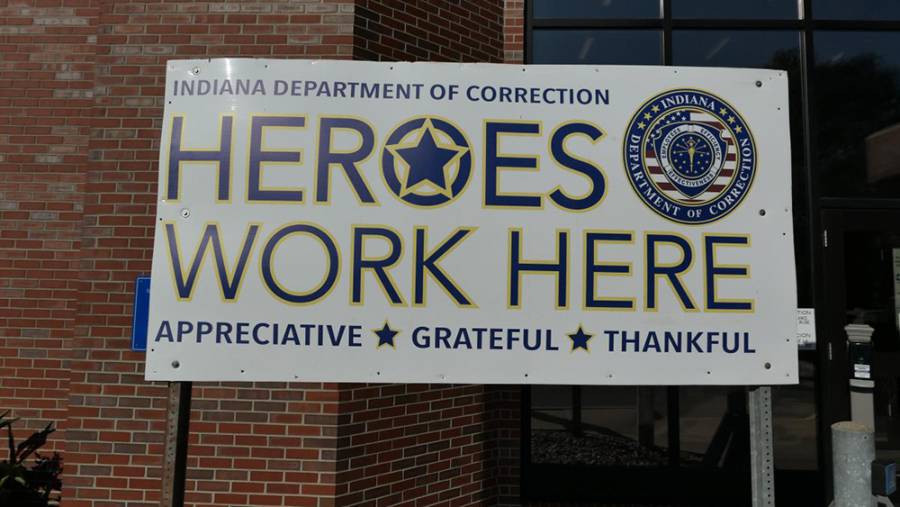
Of the four former corrections staff who spoke to Side Effects, only one volunteered that she worried about contracting the coronavirus. Instead, they mostly shared complaints similar to Kohlhepp’s.
“I felt like an outcast because of how I treated my offenders,” says Sarah Knorr, who left the department during the pandemic. “They basically want the officers to treat individual human beings like animals — maybe even worse.”
Knorr says some staff mistreated the women in the prison. They wouldn’t always unlock cell doors for bathroom breaks, which forced inmates to pee in cups and pour it out the window instead. She frequently heard officers to refer to the women as “dumb bitches.”
“A lot of the officers, they have anger issues,” she says, adding that sometimes they even yelled at her.
The treatment of the inmates gave Knorr nightmares: “I would wake up thinking I was having to lock a door.” She often cried on her way to the prison, and when she left, she took work home with her.
“I'm supposed to be having fun with my family, and I'm worried about what the next officer is doing to my unit,” she says.
In June and July, outdoor temperatures in Indianapolis rose into the 90s. Knorr says it was even hotter inside, especially in the cells. The heat made Knorr and other officers sick and “fall out.” Knorr once passed out at her desk.
On July 3, Knorr says, the administration still directed them to shut and lock women in their cells. She worried an elderly prisoner would suffer from heat stroke, or even die.
She walked out and never went back. “I’ve never had a job affect me as bad as IWP,” she says.
Renee, another former officer, also saw veteran staff mistreat inmates, including a sergeant who yelled at and chest-bumped inmates. “Why are they doing that?" she says. "That’s not our training. That goes against our core values.”
Renee, who asked to use only her middle name because she worried speaking out might affect her future job prospects, says her superiors frequently yelled at her and her fellow officers. She received multiple writeups for missing work, even though she had valid excuses, including doctor’s appointments.
Her superiors labeled her “offender friendly,” she says, and ordered her to make three writeups a shift, which can result in punishments for the inmates. But some days, the only infractions she saw were masks worn under women’s noses. Renee said in those instances, she followed her training, telling women to pull their mask up rather than write them up.
When her superiors threatened disciplinary action for failing to meet the quota, she quit during a shift. “I have been pushed over the edge,” she recalls telling one of her bosses. “I’m not doing this anymore.”
She added that earlier that shift, the commanders had told them the prison was too short-staffed to respond quickly to an emergency. “I mean, that’s scary,” she says.

As a sergeant at the men’s prison, Kohlhepp says her bosses trusted her to do her job. But at the women’s facility, her superiors would watch her every move through the security cameras.
During one particularly grueling shift in May, as she hustled to let women in and out of their cells for bathroom breaks, she said her commanding officer called her a dozen times in three hours, nitpicking her actions based on the limited view of the cameras.
“All they do at that facility is watch cameras. Not to watch the offenders — it’s to watch the staff,” she says. “It just shows a complete lack of trust.”
Kohlhepp snapped at her supervisor, who wrote her up and sent her to the deputy warden’s office for discipline.
Around that time, Kohlhepp recalls, she became short with her partner and her family. “I burned through my sick time because of stress. I'm in therapy now because … I can't deal with what they're doing. It's so frustrating.”
She aimed to transfer back to the men’s prison. Meanwhile, Koehepp felt like her superiors were looking for a reason to fire her. In July, they found one.
Kohlhepp says she slipped up while working the segregation unit, where women are held in solitary confinement. “I was exhausted, irritated that I was working a post.”
Two women in that unit would write on the walls using feces and blood. Kohlhepp took pity on the woman assigned to clean it up, and offered her a cup of coffee.
Another woman on the unit was known for throwing urine at officers — except for Kohlhepp, who had learned that treating the woman with respect, and the occasional snack, kept her dry.
The woman asked for an ice pop, and Kohlhepp obliged. She assumed the woman had already been given one — there’s no other reason she would have known to ask, Kohlhepp says.
In Indiana prisons, giving an “article” to an inmate, even food or drink, is known as trafficking — a criminal offense. David Bursten, the department spokesman, wrote in an email that “no matter how trivial the item trafficked, at some point in the future the offender will threaten the staff member that the trafficking events will be reported, thus jeopardizing the staff member’s employment.” The concern is that inmates would use that information against an officer later and get them to bring in other contraband.
The current and former employees say trafficking is a frequent issue in the women’s prison and people caught trafficking are not always fired.
“It might seem like it’s black and white, but it’s really not,” says a current staffer at the prison, who asked to remain anonymous because they didn’t have permission to speak to the media. They say trafficked items at the prison aren’t usually drugs or cell phones — but food and hygiene products, which are in short supply.
“They’re going to ignore it if it’s somebody they like, who’s in their good graces,” they say. “If it’s somebody they don’t like, they’re going to crack down on it and use it as a way to get them out.”
Bursten acknowledged that trafficking does not always result in termination. “The totality of the circumstances are weighed when making decisions to retain or dismiss personnel as a result of substantiated allegations,” he wrote.
When Kohlhepp arrived to work one day soon after, she was met at the entrance by internal investigators. After about 20 minutes of questioning, she was placed on unpaid leave and sent home.
She thought about writing a resignation letter, but held off because she still hoped she’d get demoted instead of fired. But on Aug. 7, the deputy warden called to let her go. The termination letter she received in the mail cites conduct unbecoming of staff, neglect/dereliction of duty and trafficking.
The Department of Correction declined to answer questions about Kohlhepp’s termination. It referred Side Effects to the State Personnel Department, which also declined to provide specifics.
“It wasn't like I was giving them drugs or smuggling in cell phones,” she says. “It's just something to relieve a little bit of the shit that they've been going through. That's what that got me — fired.”
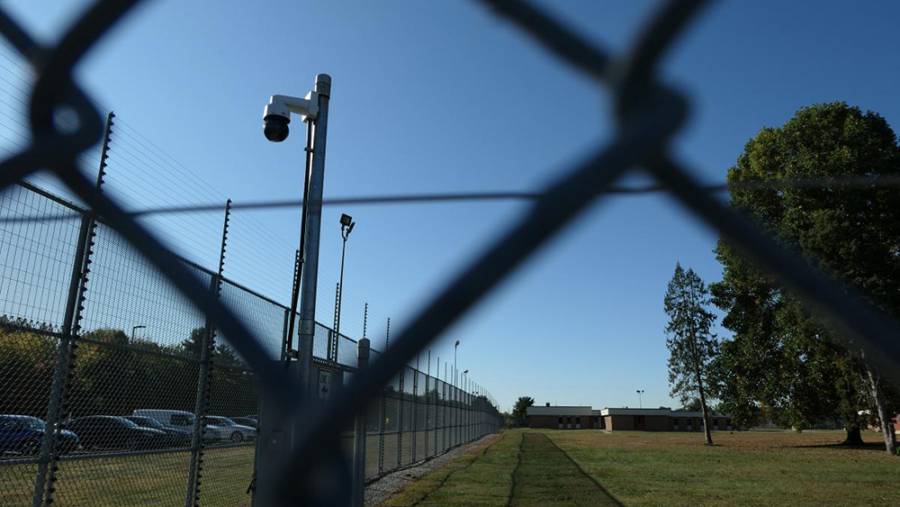
Meanwhile, in late September, a current employee says, the prison has had to limit outdoor recreation time, and even call officers in on their day off, because of the staff shortage. About 5 percent of positions at the Indiana Women’s Prison are vacant, according to the July 31 human resources report.
And the women’s prison is not the worst off.
Thirteen of the state’s 18 adult prisons report vacancy rates of more than 10 percent — five facilities have rates higher than 20 percent. The Miami Correctional Facility, which is currently experiencing a surge of coronavirus cases, reports 156 vacancies — 28 percent of its total positions. At least thirty-eight people left the prison in July alone.
On Sept. 14, the corrections department sent out its annual culture assessment. Select current employees have the chance to provide feedback, and agree or disagree with statements like “My ideas and opinions are welcomed and considered at the facility/district” or “Staff treat offenders with respect.”
Kohlhepp says in the past, the survey led to the department changing its policy on beards. Still, she doesn't expect meaningful change from the process. “I don’t really feel like it does anything. It’s just more of a bitch session.”
“Key to retention is letting staff know their efforts are appreciated,” wrote Bursten, the department spokesperson. “We conduct recurring events to express appreciation, recognition and thanks to those who serve, and to acknowledge the best among our ranks.” He mentioned various awards corrections leaders give to staff, and that the first week of May is Correctional Professional’s Appreciation Week.
“We get pens every year,” Kohlhepp says. “That’s the appreciation.”
When Kohlhepp spoke to Side Effects in September, she was delivering food for Door Dash, and planning to start a job at a Lowe’s call center in November.
She struggles with what would have happened if she never transferred from the men’s prison. “I’d still be doing what I was doing,” she says. “The pension, the retirement — all this time that I put in got tossed aside like a piece of trash.”
Given her aspirations, it shouldn’t have been a relief to leave the women’s prison, but it was.
She says, “I’m not really sure of my money situation right now, but I’m mentally at peace."
This story was produced by Side Effects Public Media, a news collaborative covering public health. Jake Harper can be reached at jharper@wfyi.org. He's on Twitter @jkhrpr.
 DONATE
DONATE




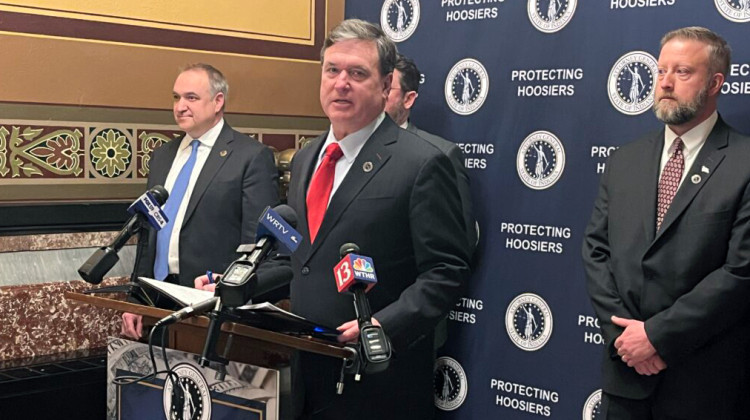


 View More Articles
View More Articles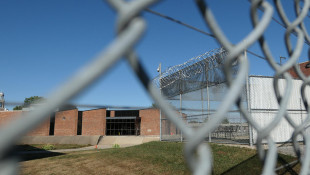
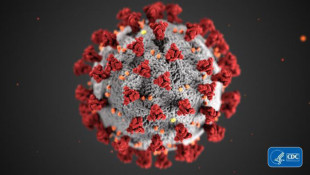

 Support WFYI. We can't do it without you.
Support WFYI. We can't do it without you.